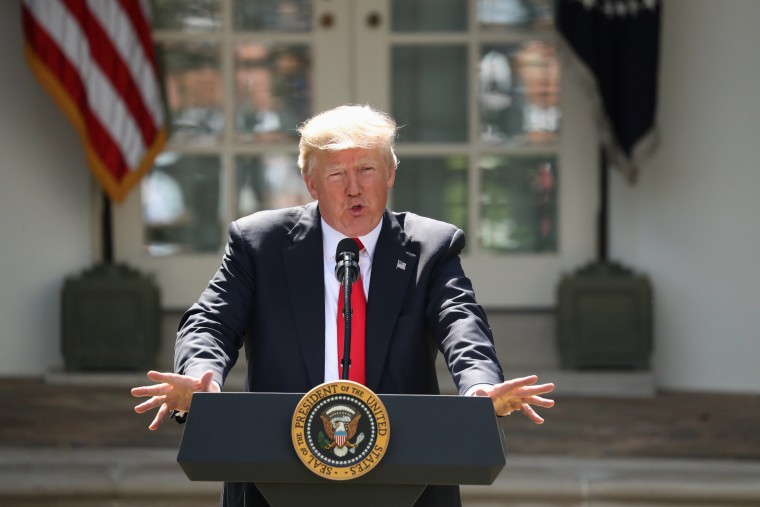Donald Trump had only been in office for six months when he announced his intention to withdraw from the Paris climate accord, isolating the United States, which had helped negotiate the international agreement. In practical terms, however, the president's declaration was largely symbolic: under the terms of the deal, no country can withdraw in the first three years.
The Paris agreement took effect on Nov. 4, 2016, which meant the earliest possible date any country could even consider withdrawal was yesterday, Nov. 4, 2019. As the Associated Press reported, the Republican administration wasted no time.
For more than two years President Donald Trump has talked about pulling the United States out of the landmark Paris climate agreement. Starting Monday he finally can do something about it.Even then, though, the withdrawal process takes a year and wouldn't become official until at least the day after the 2020 presidential election.
It's worth noting that the president appears to know very little about the climate agreement he's eager to reject. Kellyanne Conway conceded two years ago that when it came to the climate accord, Trump "started with a conclusion." That's generally not how responsible policymaking is supposed to work.
When the president delivered remarks explaining his rationale in June 2017, a Vox analysis said of the remarks, "It is a remarkable address, in its own way, in that virtually every passage contains something false or misleading. The sheer density of bulls**t is almost admirable, from a performance art perspective."
In the same speech, Trump looked ahead, assuring the world, "We're getting out, but we will start to negotiate, and we will see if we can make a deal that's fair." There's little evidence to suggest the White House made any effort to follow through on this half-hearted commitment.
But as indefensible as Trump's indifference to the climate crisis is, and as painful as his willful ignorance has become, yesterday's developments raised the stakes of the 2020 U.S. presidential election in a specific way.
Under the procedural guidelines of the Paris agreement, yesterday was the first day in which any country could begin the withdrawal process. It begins with a formal letter to the United Nations, which the administration sent. But that declaration won't become official for another year, which will bring us to Nov. 4, 2020.
Election Day in the United States is Nov. 3, 2020.
If Trump wins a second term, U.S. withdrawal from the international climate agreement will become official. If his Democratic rival prevails, he or she will have the authority to re-embrace the accord.
The stakes in next year's election were already high. Yesterday's announcement brought this into even sharper focus.
